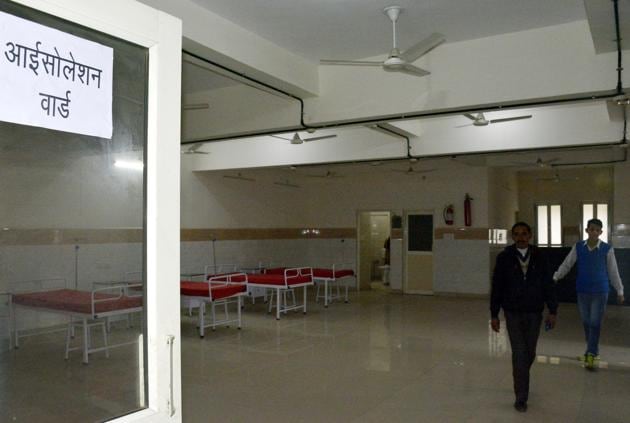Decoding the risks of the coronavirus outbreak
Don’t panic. India’s best defence is to improve public health and infection control within hospitals
Ever feared the common cold? The coronavirus is the underlying cause, but from time to time, these viruses mutate into something far more deadly. This was the case with Severe Acute Respiratory Syndrome (SARS) in 2002/03, and the Middle East respiratory syndrome (MERS), also known as camel flu. Neither of these recent
coronavirus outbreaks spread beyond a few countries. But the situation seems to be quite different with the latest
coronavirus outbreak reported from the city of Wuhan in Hubei province in China. This particular strain appears to be more contagious than previous ones, but less severe than had been seen with SARS. To date, close to 9,000 cases and over 100 deaths have been reported in over 18 countries. It took more than two months for SARS to infect 500 patients but the Wuhan coronavirus has reached that number in just a couple of weeks.

Already,the stock prices of companies with exposure to China have dropped. Starbucks has closed more than half of its roughly 4,300 Chinese stores, and its stock price has dropped more than 3.5%.
The stock markets in India have moved lower ostensibly because of the coronavirus, but fears of economic damage are probably overblown unless the virus mutates into something far more virulent. The current case fatality is low — fewer than four in every 100 cases result in death. Even this is likely an overestimate, since the number of cases in China are probably at least an order of magnitude greater than those reported by the authorities and mild cases may not be diagnosed. In fact, many of those who died of the Wuhan coronavirus did not report having a fever. Therefore, getting a case of the coronavirus is by no means a death sentence.
Moreover, India is relatively less affected because of the more limited trade and people-to-people interaction with China. The Chinese government has been far more forthcoming with information this time, compared to the situation with SARS. Further, it has taken active measures to quarantine affected populations, putting entire cities under lockdown. But the real damage to the economy comes from the uncertainty we all face in determining our individual risk associated with this outbreak. This determines whether we are willing to get on a plane or expose ourselves to risk for either business or tourism. With less travel and business contact, the economy suffers.
In reality, the risk of getting infected to the average Indian because of a domestic flight or an international flight somewhere other than China is likely to be quite minimal. Coronaviruses are only a small fraction of the large number of viruses circulating. And to put things in perspective, it is likely that about seven in every million Chinese is infected. That is a very small number. This is why screening every person from China to find the proverbial needle in a haystack makes little sense, forget about screening every airline passenger. But should there be a coronavirus case admitted to a hospital in India, and without adequate knowledge of the infection status of the patient, there is likely to be rapid transmission and greater risk of fatalities because of our poor infection control and the large of patients who are already sick.
The nature of damage of pandemics has changed over time. In the 20th century, disease outbreaks, notably the flu pandemic of 1918 which killed over 50 million people, HIV/AIDS which has claimed over 40 million lives to date, and the 1968 Asian flu pandemic of Influenza A of the H2N2 subtype which was responsible for close to 2 million deaths, spread quickly because information did not travel fast to enable countries and individuals to protect themselves. In comparison, the SARS outbreak in 2002/03 was of much smaller magnitude and resulted in fewer than 1,000 deaths. But the economic disruption caused by SARS was severe and resulted in slower growth in China and global damage of about $38 billion according to the World Bank.
The scenario of millions of deaths associated with global disease outbreaks is frequently discussed but this may be less likely because of the speed at which information travels and the ability of individuals to protect themselves by avoiding contact with others. Diseases travel more rapidly in the 21st century but information travels even faster. Thanks to advances in detection technology and public systems, pandemics are detected earlier than in the past. Of greater concern is the economic damage, and the potential for such events to tip a fragile global economy into a recession. Even a few thousand cases or a few hundred deaths have the potential cause serious short-term damage.
Within India, our own damage may end up being largely self-inflicted by lack of trust in our health system to respond effectively and to share information to enable us to protect ourselves. Our best defence is to improve public health and infection control within hospitals rather than rushing into cold panic every time there is an outbreak somewhere in the world.
Ramanan Laxminarayan is director and senior fellow at the Center for Disease Dynamics, Economics & Policy in Washington DC and New Delhi
The views expressed are personal



